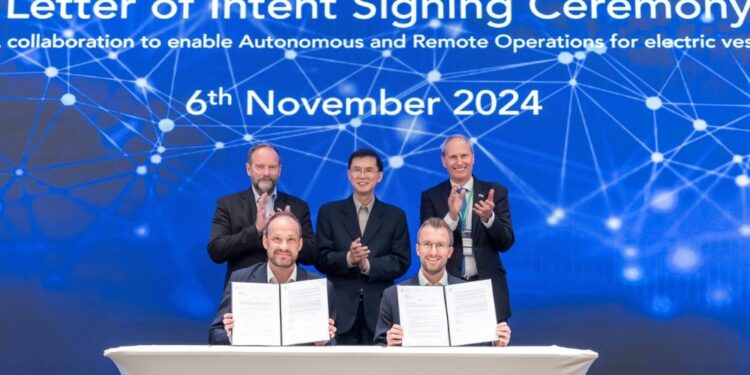Yinson GreenTech and autonomous maritime technology company Zeabuz have signed a Letter of Intent to integrate autonomous and remote-control capabilities into Yinson GreenTech’s fleet of marine electric vessels.
This collaboration was formalised at the Singapore Norway Innovation Conference on 6 November. It marked a significant step towards decarbonising Singapore’s maritime industry by combining the power of electrification and autonomous maritime operations.
The collaboration aims to deliver more efficient marine solutions by integrating Zeabuz’s hardware and proprietary software algorithms into Yinson GreenTech’s marinEV fleet of electric vessels.
Critically, by combining autonomous driving technology with electric marine vessels, this collaboration will address the maritime industry’s long-term manpower challenges. It will reduce the number of crew members required onboard, making maritime operations more efficient.
Additionally, it will enhance the attractiveness of maritime jobs by introducing new, knowledge-based skillsets like artificial intelligence, machine learning, and remote operations. This aligns with the Maritime and Port Authority of Singapore’s (MPA) Industry Transformation Map, particularly its focus on digitalisation.
“To fulfil Yinson GreenTech’s broader vision of building a net-zero world, marinEV believes in harnessing the power of sustainable innovation through strategic partnerships,” said Jan-Viggo Johansen, Managing Director of marinEV.
“Our collaboration with Zeabuz marks a significant step towards accelerating the adoption of autonomous solutions, which will not only enhance the safety and efficiency of maritime operations but also significantly reduce our environmental impact on waterways.”
“By combining the power of electrification, onboard autonomy, and remote supervisory control, we are laying a strong foundation for the future of sustainable maritime operations,” said Øyvind Smogeli, CEO and Co-Founder of Zeabuz.
“We are excited to deepen our collaboration with Yinson GreenTech to build a future of sustainable, technology-driven marine transport.”












